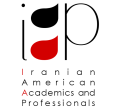Where: Montgomery Community College (Rockville Campus) – Humanity Building (HU), Conference Room 009 (Get Directions, Campus Map )
Language: English

Synopsis:
The long-term storage of carbon dioxide (CO2) via injection into deep geologic formations represents a promising technological pathway for reducing greenhouse gas emissions to the atmosphere. This lecture will discuss developing a preliminary assessment of the economic feasibility of storing CO2 in depleted unconventional natural gas-bearing shale formations. Using a surrogate reservoir model (SRM) and a flexible environment for techno-economic analysis, site-scale estimates of long-term CO2 sequestration costs in depleted shale gas formations and the likely major cost drivers will be discussed. This approach couples techno-economic analysis with reservoir simulation models to estimate costs associated with transportation, injection, CO2 separation and post-injection monitoring of CO2 storage permanence from large industrial point sources in depleted shale-gas reservoirs. Developed cost model forms the required structure to study the influential factors in decision making and policy analysis of CO2 storage in shale gas formations, such as CH4 and CO2 price.
About the Speaker:
Dr. Tayari is a postdoctoral researcher in Department of Energy and Mineral Engineering at Pennsylvania State University. After gaining several years of experience in energy industry during 2005-2010 in Iran, he started his Ph.D. at Pennsylvania State University in 2011, where he earned his Ph.D. in Energy Management and Policy in 2014. He received his MBA degree in Marketing from University of Tehran and his B.Sc. in Chemical Engineering from Sharif University of Technology. His research interests include quantitative analysis of complex engineering/economic energy systems, techno-economic modeling, economic feasibility assessment and policy analysis. He served as the President of Iranian Student Association at Pennsylvania State University (ISA) in 2013.
Fee (including dinner): $10 Students, $15 Public
Please click here to RSVP.


